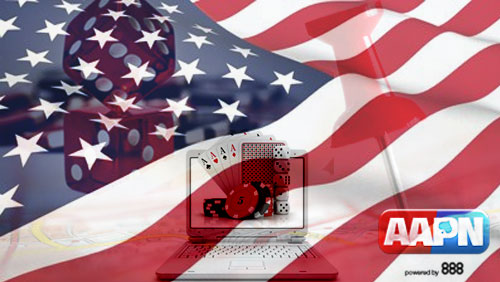Last week I was in San Francisco attending GiGse 2014, an annual gathering of professionals in the US regulated online gambling market. At  present we’ve got Nevada, Delaware and New Jersey up and running with various online gambling offerings, but what is next? We need more revenue, more liquidity, more clarity and quite frankly, more US states to jump on the bandwagon before things really get moving.
present we’ve got Nevada, Delaware and New Jersey up and running with various online gambling offerings, but what is next? We need more revenue, more liquidity, more clarity and quite frankly, more US states to jump on the bandwagon before things really get moving.
Until we have more states involved, the best we can do is unite as an industry to speed the process along and to set ourselves up for success once iGaming regulation hits full swing in America. An example of an entity that is doing just this is the All American Poker Network (AAPN), a joint venture between 888 Holdings and Avenue Capital Group.
The APPN is the first US regulated online poker network in America and is poised to become the first US regulated interstate network in the country. The network has a license to operate in Nevada, Delaware and New Jersey and will pursue licenses in each American state as they become available. At present the network operates on an intrastate basis in New Jersey, soon in Nevada and will offer interstate online poker as soon as compacts are finalized.
David Licht is the Executive Chairman of AAPN and he attended GiGse earlier this month as a speaker and an attendee. I caught up with Licht after the conference finished to get his thoughts on the event as a whole and to find out what’s cooking from an online poker and soon-to-be interstate online poker perspective.
Becky Liggero: Thank you very much for your time today, David. We know you attended GiGse earlier this month, how was the event and what did you learn?
David Licht: The conference was very well organized and insightful. [I learned] that there is strong support from the industry to have a more unified position and game plan for regulation across the US, specifically, the industry’s support regarding “harmonization”.
BL: Yes, I agree that the industry is really coming together on this. What were the most interesting points covered in the “Taking a Leap into Interstate Gaming” session you participated in?
DL: I think one of the most interesting points discussed in both my panel and other panels was the amount of online gaming that is occurring in the US on illegal sites and that the best way to ensure that the consumer is protected is to regulate online gaming. Without regulation, states will not be able to enjoy the benefits of the tax revenue and oversee the operators.
BL: I think we would all like to see more US regulated states and agreements between them formed, but what are some of the complications when it comes to interstate compacting in America?
DL: Making sure that legislators and regulators are educated that online gaming can happen in a secure, responsible and prudent fashion. I still think that there is a massive amount of education on the industry that needs to be done. What we have found is that once people learn the facts, they are invariably supportive of online gaming. Operationally, from both a technology and marketing standpoint, I think we are prepared.
BL: Yes, education is key. So when do you think we will we see actual movement on the Delaware & Nevada agreement?
DL: We have seen a ton of work already done between the regulators and Governors in Nevada and Delaware in conjunction with development and platform work by 888. I believe that this is just the first step in allowing other states to join the liquidity pool and ensure that players in multiple jurisdictions have a complete experience. While timelines are still being established, I would expect shared liquidity in Q4 or Q1 of 2015 subject to regulation.
BL: Looking forward to it. What kinds of preliminary conversations have you had with the California regulators and operators?
DL: The AAPN has been very active in terms of speaking with California regulators, Native American Tribes and Card Rooms all over California.
BL: And what are their thoughts on the AAPN?
DL: There is a universal feeling that the AAPN is well situated in California due to the success of the 888 platform in both regulated markets internationally and in the US and the ability to market to customers to build liquidity. The 888 platform is the only platform that is live in all 3 regulated US states which gives potential partners and regulators a lot of confidence in the platform.
BL: Seeing as 888 has been successful in a number of markets, what are AAPN’s thoughts on eventually inviting international players into the mix?
DL: I think that given the current US regulatory environment, it is going to be challenging to do that in the short-term. Longer-term it is certainly possible, but I believe that there still needs to be substantial education on online gaming before this becomes a reality.
BL: Fair enough, David. Thank very much for sharing your insight, we look forward to watching the AAPN grow in regulated America.